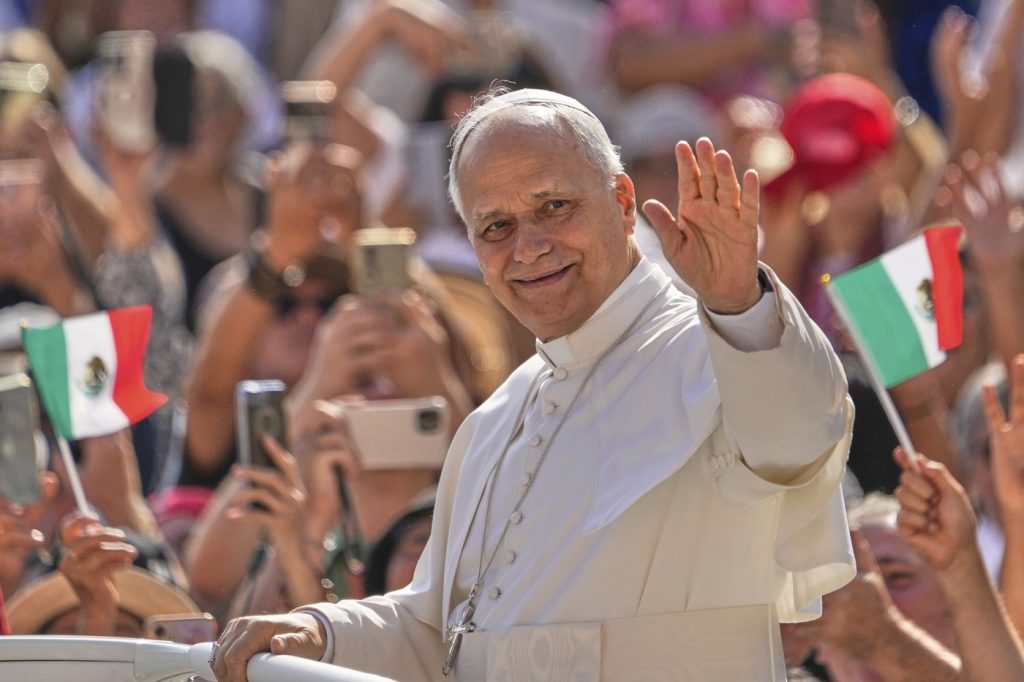In his first interview as the first American pope in history, Pope Leo XIV emphasized his intention to avoid involvement in U.S. politics while addressing key issues pertaining to the Catholic Church, such as immigration. The interview, conducted by Vatican correspondent Elise Ann Allen of the news site Crux, covered various topics from the Trump administration to the clergy sexual abuse crisis, the welcoming of LGBTQ+ Catholics, and Vatican relations with China. It was published in Peru, where Leo served as bishop for several years.
Pope Leo XIV expressed a deep commitment to inclusivity, embracing Pope Francis' message that "todos, todos, todos" are welcome in the Catholic Church. He acknowledged the church's core doctrine regarding sexuality but suggested that changes to this doctrine are unlikely in the near future. "Everyone's invited in, but I don’t invite a person in because they are or are not of any specific identity," he stated, highlighting the concept that each individual is a "son or daughter of God." He further urged for a shift in attitudes within the church before considering doctrinal changes.
Regarding the Vatican's relationship with China, Pope Leo maintained that no immediate changes are expected in the 2018 agreement regarding bishop nominations, which had aimed to unify China's estimated 12 million Catholics. He mentioned that he was in discussions with individuals from both the state-sanctioned church and the underground church, emphasizing the importance of studying the complex relationship and maintaining dialogue to avoid creating further divisions.
On the issue of clergy sexual abuse, Leo acknowledged that the crisis remains significant and unresolved, stating that the church has not yet found effective methods to assist victims in their healing. However, he also highlighted the necessity of respecting the rights of accused priests, mentioning that while most accusers are genuine victims, there have been documented instances of false accusations that have harmed the lives of innocent priests. He insisted that the sex abuse scandal should not overshadow the church's broader mission.
Pope Leo addressed U.S. politics, specifically noting the powerful influence of the United States on global affairs, especially concerning migration, which is a pressing issue for the Catholic Church. He recalled Pope Francis's letter to U.S. bishops criticizing the Trump administration's mass deportation policies, commending the bishops for their courage in standing up against such measures. While recognizing differences in political views with his brother Luis Prevost, he articulated a commitment to discussing human dignity and emphasizing the moral considerations in policy-making.
When it comes to the role of women in the church, Pope Leo affirmed his dedication to appointing women to leadership positions. However, he tempered expectations regarding the ordination of women as deacons or priests, citing ongoing studies by the Vatican’s doctrine office without any immediate intention to alter existing church teachings on the matter.
Pope Leo also inherited a significant financial challenge at the Vatican, facing a structural deficit estimated between 50 to 60 million euros ($57 million to $68 million) and a substantial shortfall in the pension fund amounting to 1 billion euros ($1.14 billion). He noted that the economic impact of the pandemic had severely affected Vatican revenues, particularly from the Vatican Museums. Nevertheless, he expressed optimism about improving financial conditions, asserting, "It is not the crisis that people have been led to believe," while acknowledging the need for ongoing efforts to address fiscal responsibility.











